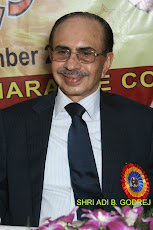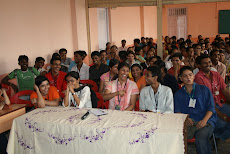List of Open Access (FREE) Journals in Economics
1. Alaska Economic Trends
2. Analisis Economico
3. Annals of Economics and Finance
4. Asia-Pacific Development Journal
5. Asian Development Review
6. Australian Review of Public Affair
7. BILTOK
8. Business Communications Review (Registration required)
9. Business Finance
10. CESifo Forum
11. Computers in Higher Education Economics Review
12. Cuadernos de Economia
13. Cuadernos de economia - Latin American Journal of Economics
14. Decisions in Imaging Economics
15. Demographic Research
16. Economia Mexicana
17. Economic Analysis Working Papers
18. Economic and Financial Policy Review
19. Economic Bulletin
20. Econ Journal Watch
21. Economic Perspectives
22. Economic Trends
23. Economics : The Open-Access, Open-Assessment E-Journal Economics Bulletin
24. Economics,Management and Financial Markets
25. EconSouth
26. Ekonomska Misao i Praksa
27. Ekonomski Pregled
28. Electronic Journal of Evolutionary Modeling and Economic Dynamics
29. Erasmus Law and Economics Review
30. European Journal of Comparative Economics
31. European Journal of Economics, Finance and Administrative Sciences
32. Evolutionary and Institutional Economics Review
33. Federal Reserve Bank of Atlanta Economic Review
34. Federal Reserve Bank of Kansas Economic Review
35. Federal Reserve Bank of Richmond Economic Quarterly
36. Federal Reserve Bank of San Francisco Economic Review
37. Federal Reserve Bank of St. Louis Review
38. Finance & Development
39. Financial Advisor
40. Financial Counseling and Planning
41. Financial Management
42. Financial Planning (Registration required)
43. Financial Stability Review
44. Financial Theory and Practice
45. Financial Update
46. Finnish Economic Papers
47. Global Finance
48. IMF Research Bulletin
49. IMF Staff Papers
50. IMF Survey
51. Indiana Business Review
52. Industrial Economist
53. International Journal of Applied Econometrics and Quantitative Studies
54. International Research Journal of Finance and Economics
55. International Review of Economics Education
56. Ivey Business Journal
57. Journal of Applied Economics
58. Journal of Economic Education
59. Journal of Economics and Finance Education
60. Journal of Financial Planning
61. Journal of Home Economics of Japan
62. Journal of Regional Analysis and Policy
63. Kyoto Economic Review
64. MyBusiness Magazine
65. New England Economic Indicators
66. New England Economic Review
67. New Perspectives on Political Economy
68. Nova Economia
69. Regional Economist
70. Reserve Bank of India Bulletin
71. Reserve Bank of India Bulletin: Weekly Statistical Supplement
72. Revista brasileira de economia
73. Revista de Economica Politica
74. Russian Economy: Trends and Perspectives
75. Theoretical and Applied Economics
76. Theoretical Economics
77. Western Economic Developments





